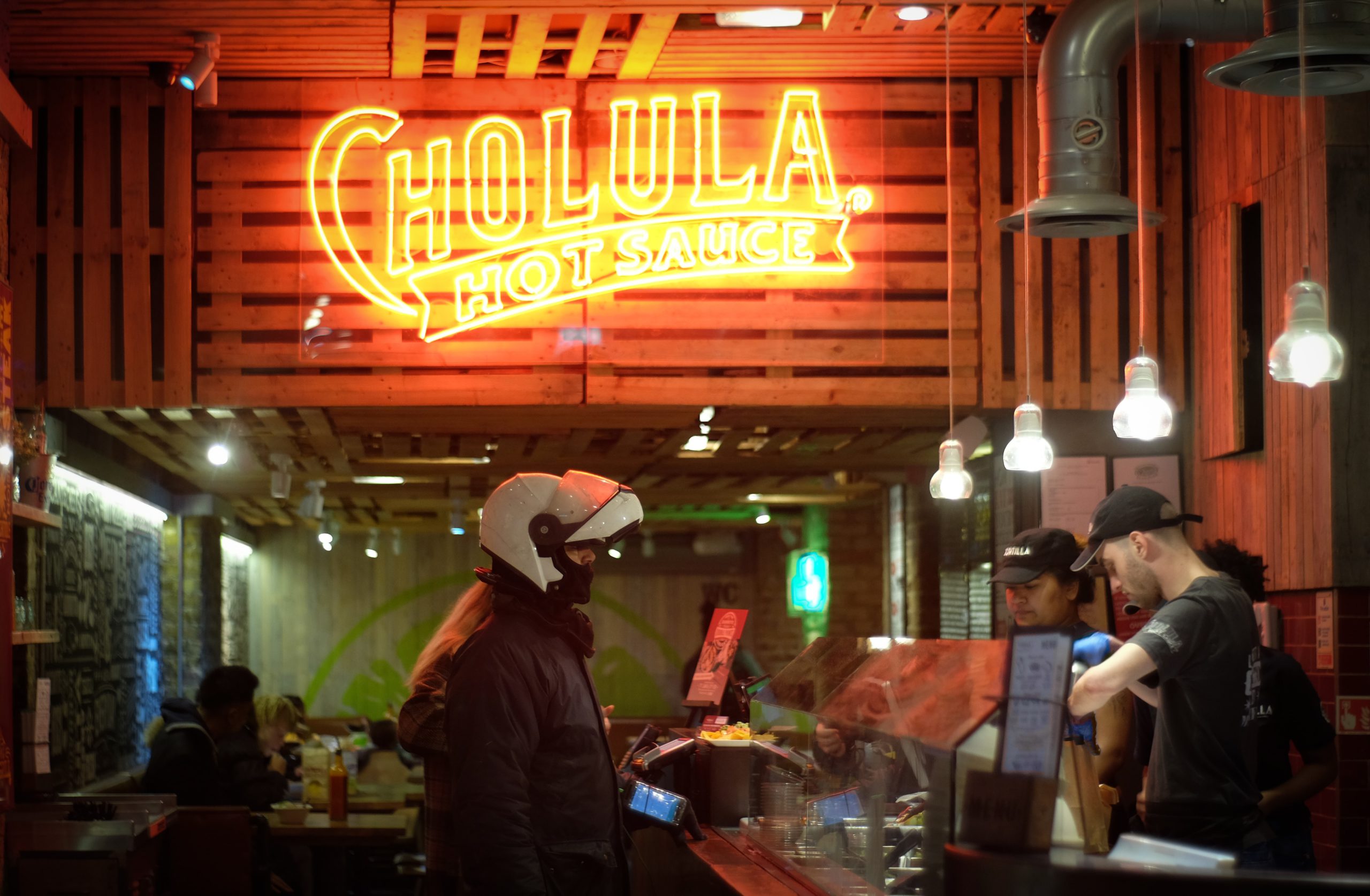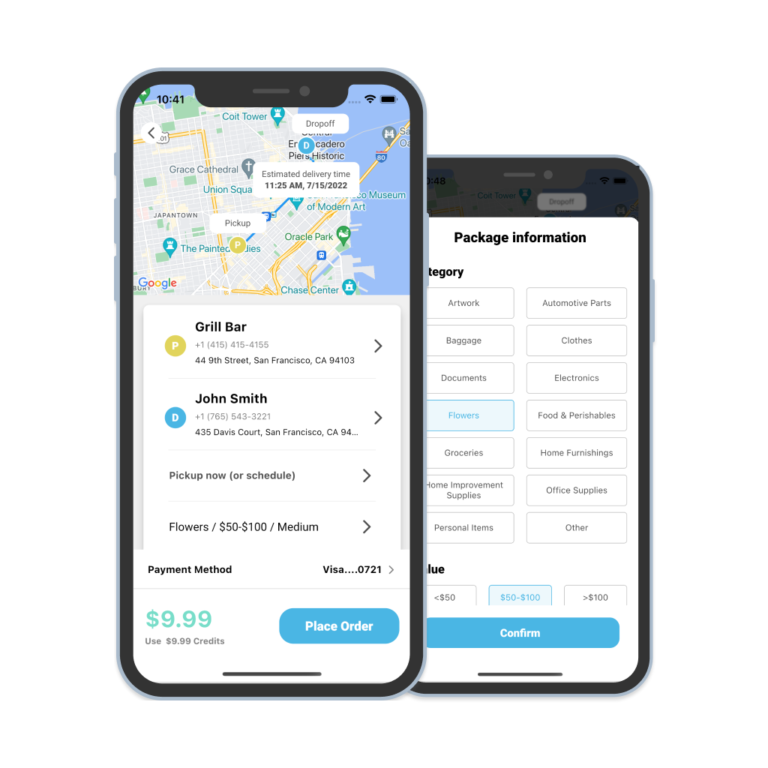Photo by Viktor Forgacs on Unsplash
Using third-party delivery services has become the new normal in the restaurant industry and beyond. From Uber Eats to DoorDash to Postmates or GrubHub, the options are endless and new niche services like Caviar or Seamless are popping up everyday.
The data speaks for itself. A 2019 report from UBS suggests that the online food delivery industry will grow 20% each year, and could reach $365 billion globally by 2030 (from just $35 billion in 2018).
However, amid COVID-19 and the economic downturn, many of these third-party services have hiked up fees, leaving restaurants to question whether the investment is even worthwhile.
Let’s take a look at the challenges behind third-party delivery.
High Costs, Low Profit Margins
Packaging and delivery fees alike can take a large chunk out of profits, and let’s not forget that some delivery services fail to include items like drinks which have high profit margins for restaurants.
Research and data from Pentallect and the Wall Street Journal found that when restaurants deliver through a third-party app they can make up to 30% less than they would via dine-in. A majority of customers also typically don’t want to pay more than $5 for delivery fees.
Commission fees can also be costly for restaurants. Many cities nationwide have proposed bills to limit commission rates—which can reach up to 30%—during the pandemic. San Francisco, New York City and Washington, D.C. have all passed bills, but who’s to say this can’t change?
Higher Customer Costs
Although convenience is definitely a component when choosing a third-party delivery service, meals can also cost more for customers. Because of high commission fees, restaurants will typically need to increase menu prices on third-party delivery apps in order to recoup losses.
A New York Times study, which compared the cost of ordering several Subway items across Grubhub, DoorDash, Postmates, and Uber Eats, found that markups on food delivery can range between 7% to 91% higher than restaurant prices.
While simply advertising for delivery through third-party apps might help attract new business and reach millions of customers, high costs have the potential to prevent customers from choosing a restaurant altogether.
Restaurants’ Reputations are on the Line
Although third-party delivery apps are independent by design, bad service can reflect poorly on restaurants. According to a 2016 study from Technomic, 76% of consumers will hold the restaurant responsible for errors within delivery, even if a third-party delivery app is to blame.
Ultimately, when it comes to opting into third-party delivery, high commission rates and costs for customers make third-party delivery not worth the premium for smaller restaurants. Although third-party delivery may open up opportunities for new customers, the cons seem to outweigh the benefits. Instead, businesses can focus on building their own delivery platform to better situate themselves in the long-run.
We’re Here to Help
At Hyperflyer, we’re building a cloud-based platform that provides white-labeled solutions for restaurants to establish, operate, and benefit from their own online ordering systems. Hyperflyer’s services include commission-free online ordering, flat-rate delivery, and powerful social marketing tools. Unlike many third-party delivery marketplaces, we want to empower restaurants to grow on their own.
Learn more about our mission here!






Interesting topic, I’m curious to see what others think about this
Gaming with Boombet Casino AU has been a breeze! The interface is sleek, the navigation is intuitive, and there are so many exciting games to choose from. They make every win feel special with their fantastic promotions and bonuses. Deposits are seamless, and withdrawals are swift. Trustworthy and entertaining—this is the perfect online casino!
Your point of view caught my eye and was very interesting. Thanks. I have a question for you.
Before opting into third-party delivery, restaurants should consider factors like cost and customer experience. Integrating AI in customer service can help improve efficiency and handle customer inquiries effectively, even with third-party services.
If you have been looking for a betting site with a wide range of features, https://888starzbd.com/ is the perfect option. It offers over 2800 games, live sports broadcasts and attractive bonuses. The site is licensed, ensuring your safety, and works seamlessly on both mobile and desktop. Ready for an exciting betting adventure? Check it out right now.
Writing personal statements for residency can be a challenging yet rewarding experience. It’s your opportunity to showcase your unique journey, passion for medicine, and commitment to your chosen specialty. A well-crafted statement allows you to reflect on your experiences, highlight key achievements, and express your future aspirations. I found that starting with an outline helped organize my thoughts, making it easier to convey my story. Additionally, seeking feedback from mentors and peers provided valuable insights. Ultimately, a compelling personal statement can significantly impact your residency application, setting you apart in a competitive field.
Thanks for sharing. I read many of your blog posts, cool, your blog is very good.
I have read your article carefully and I agree with you very much. This has provided a great help for my thesis writing, and I will seriously improve it. However, I don’t know much about a certain place. Can you help me?